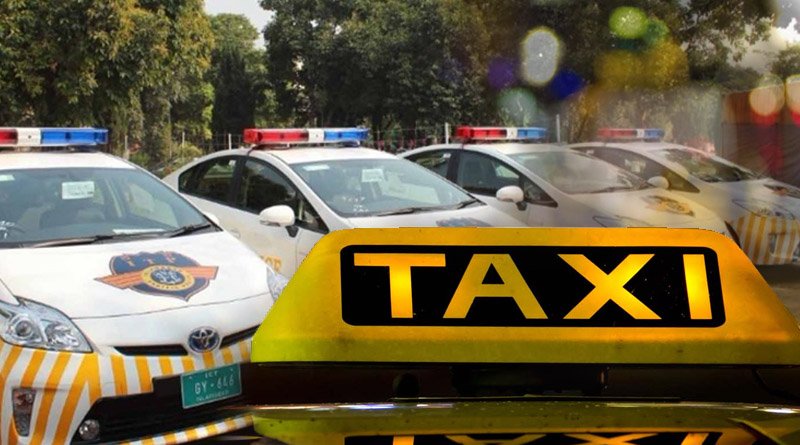Beginning in 2020, these online service providers operate more actively in the nation. However, the SSP, Dr. Tanveer, asserts that they lack institutional protection.

To improve the city’s commercial traffic system, the Islamabad Traffic Police (ITP) recommended that the Islamabad Capital Territory (ICT) administration register all online cab services currently operating in the nation.
According to the information that is currently available, the goal of the change was to consolidate all similar digital commercial services under one roof in order to improve the traffic system.
Dr. Mustafa Tanveer, senior superintendent of police (SSP) traffic, confirmed the development and added that a letter was also sent to the city administration asking them to develop a workable policy in this area. According to him, the mission would soon be completed in collaboration with the city administration.
In response to a query, the SSP stated that while “such online cab services are running throughout the world, they must be maintained under some strategy,” adding that any service that is active in a nation without any policies is inappropriate.
According to the available information, there are three such online services: Cream, Uber, and InDrive. In many areas of the nation, they offer intercity transportation to citizens as well as luggage, package, and delivery services.
Users can easily access the service by simply installing the appropriate application on their smartphones. These businesses claim that they offer their services in more than 700 cities across more than 40 nations. Such services are regularly used by up to 2 billion people.
Beginning in 2020, these online service providers operate more actively in the nation. However, the SSP, Dr. Tanveer, asserts that they lack institutional protection.
He recalled, “It does not happen in any country that any such service operates while the concerned state has no record of it,” adding that it is essential for both the safety of the citizens and for bringing our traffic up to par with international standards.
The SSP recalled that the ITP had already created a digital traffic system that required less human intervention, which he hoped would improve further in the future. According to the information that was available, a digital traffic system had been installed almost two years prior but was still not fully operational.
When traffic violations dramatically increased, the relevant authorities responded with special measures and seriousness. Following that, modern equipment allowed the ITP to make use of all available resources and take strict action against those who violated the traffic laws.
At least 15,000 e-tickets have been issued in the last two weeks, according to police data that was made public in January of this year. The authorities reported issuing more than 49,000 tickets to drivers for breaking traffic laws in a statement released on January 16. Each day, ITP officers operating within the ICT’s purview issue up to 1,000 e-tickets.
The violators received digital tickets at their residences in accordance with the e-challan mechanism. In the event that the fine was not paid within the allotted time, a copy of the challan was included with the master file of vehicles at the excise office. If a person commits the same offence repeatedly, their record will also be sent to the appropriate police station, which will include information about her character history.
In order to collect the fine both manually and digitally when the e-challan system was in use, the ITP and National Bank of Pakistan (NBP) signed a Memorandum of Understanding (MoU) to that effect. While the NBP had forced some private digital payment companies to outsource.